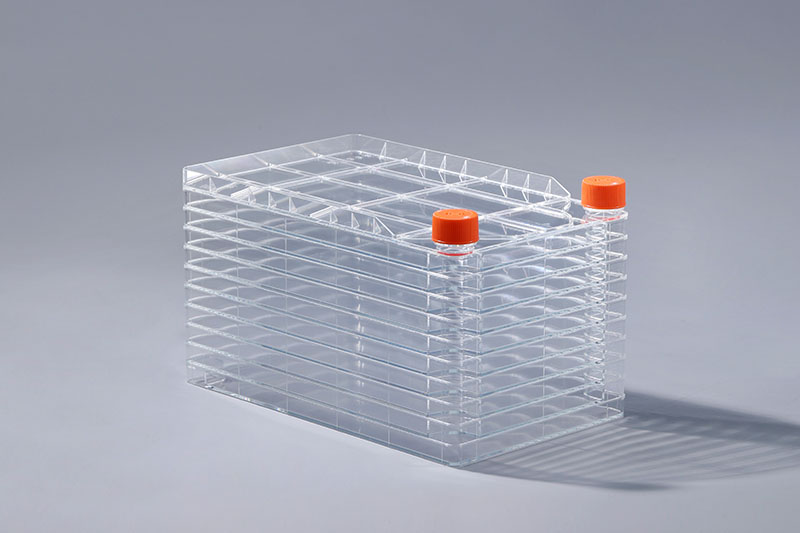Which cells can be cultured with cell factories
Cell culture is an important and commonly used technique in cell biology research methods. Through cell culture, a large number of cells can be obtained, and cell signal transduction, cell anabolism, cell growth and proliferation can be studied by means of cell culture. In large-scale cell culture, cell factory is an efficient and commonly used cell culture consumable.
The cell factory consists of one or more layers, the common ones are 1 layer, 2 layers, 5 layers, 10 layers, 40 layers, etc. The layers are connected by a special adhesive process to ensure the firmness of the product. In order to improve the hydrophilicity of the container surface and make it more suitable for cell growth and reproduction, this consumable will undergo special surface treatment to introduce hydrophilic groups on the hydrophobic surface to enhance the adherence of cells and make it easier for cells with low adhesion characteristics stick to the wall.
The cell factory is mainly suitable for the culture of a variety of adherent cells, such as Vero cells, HEK 293 cells, CAR-T cells, MRC5, CEF cells, porcine alveolar macrophages, myeloma cells, DF-1 cells, ST cells, PK15 cells, Marc145 cells and other adherent cells. It is also suitable for static culture of suspension cells such as CHO cells, insect cells, BHK21 cells and MDCK cells.
Using cell factories for large-scale cell culture can reduce space, save manpower, and have a larger culture area while reducing the possibility of cell contamination. It is widely used in vaccine development and cell industrial production.

评论
发表评论